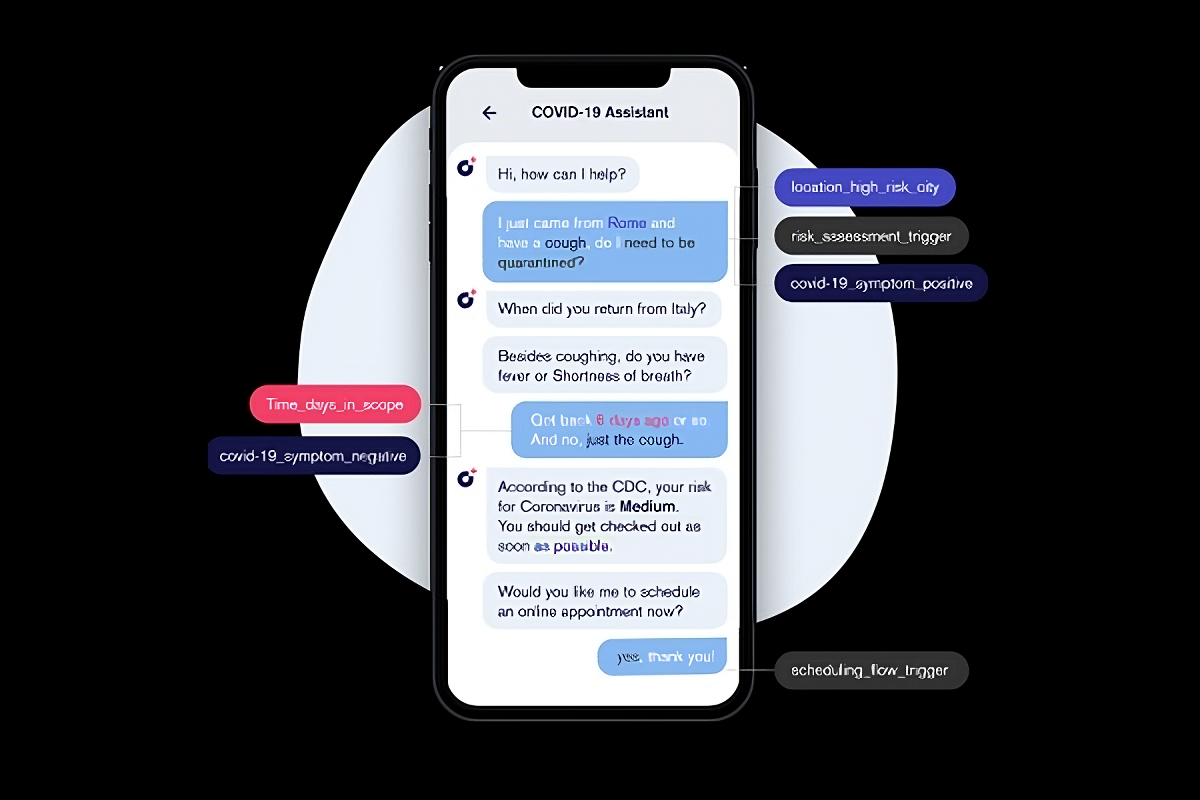Israel Krush and Rom Cohen first met in an AI course at Cornell Tech, where they bonded over a shared desire to apply AI voice technologies to the healthcare sector. Specifically, they sought to automate the routine messages and calls that often lead to administrative burnout, like calls about scheduling, prescription refills and searching through physician directories.
Several years after graduating, Krush and Cohen productized their ideas with Hyro, which uses AI to facilitate text and voice conversations across the web, call centers and apps between healthcare organizations and their clients. Hyro today announced that it raised $20 million in a Series B round led by Liberty Mutual, Macquarie Capital and Black Opal, bringing the startup’s total raised to $35 million.
Krush says that the new cash will be put toward expanding Hyro’s go-to-market teams and R&D.
“When we searched for a domain that would benefit from transforming these technologies most, we discovered and validated that healthcare, with staffing shortages and antiquated processes, had the greatest need and pain points, and have continued to focus on this particular vertical,” Krush told TechCrunch in an email interview.
To Krush’s point, the healthcare industry faces a major staffing shortfall, exacerbated by the logistical complications that arose during the pandemic. In a recent interview with Keona Health, Halee Fischer-Wright, CEO of Medical Group Management Association (MGMA), said that MGMA’s heard that 88% of medical practices have had difficulties recruiting front-of-office staff over the last year. By another estimates, the healthcare field has lost 20% of its workforce.
Hyro doesn’t attempt to replace staffers. But it does inject automation into the equation. The platform is essentially a drop-in replacement for traditional IVR systems, handling calls and texts automatically using conversational AI.
Hyro can answer common questions and handle tasks like booking or rescheduling an appointment, providing engagement and conversion metrics on the backend as it does so.
Plenty of platforms do — or at least claim to. See RedRoute, a voice-based conversational AI startup that delivers an “Alexa-like” customer service experience over the phone. Elsewhere, there’s Omilia, which provides a conversational solution that works on all platforms (e.g. phone, web chat, social networks, SMS and more) and integrates with existing customer support systems.
But Krush claims that Hyro is differentiated. For one, he says, it offers an AI-powered search feature that scrapes up-to-date information from a customer’s website — ostensibly preventing wrong answers to questions (a notorious problem with text-generating AI). Hyro also boasts “smart routing,” which enables it to “intelligently” decide whether to complete a task automatically, send a link to self-serve via SMS or route a request to the right department.

A bot created using Hyro’s development tools. Image Credits: Hyro
“Our AI assistants have been used by tens of millions of patients, automating conversations on various channels,” Krush said. “Hyro creates a feedback loop by identifying missing knowledge gaps, basically mimicking the operations of a call center agent. It also shows within a conversation exactly how the AI assistant deduced the correct response to a patient or customer query, meaning that if incorrect answers were given, an enterprise can understand exactly which piece of content or dataset is labeled incorrectly and fix accordingly.”
Of course, no technology’s perfect, and Hyro’s likely isn’t an exception to the rule. But the startup’s sales pitch was enough to win over dozens of healthcare networks, providers and hospitals as clients, including Weill Cornell Medicine. Annual recurring revenue has doubled since Hyro went to market in 2019, Krush claims.
Hyro’s future plans entail expanding to industries adjacent to healthcare, including real estate and the public sector, as well as rounding out the platform with more customization options, business optimization recommendations and “variety” in the AI skills that Hyro supports.
“The pandemic expedited digital transformation for healthcare and made the problems we’re solving very clear and obvious (e.g. the spike in calls surrounding information, access to testing, etc.),” Krush said. “We were one of the first to offer a COVID-19 virtual assistant that deployed in under 48 hours based on trusted information from the health system and trusted resources such as the CDC and World Health Organization …. Hyro is well funded, with good growth and momentum, and we’ve always managed a responsible budget, so we’re actually looking to expand and gather more market share while competitors are slowing down.”

